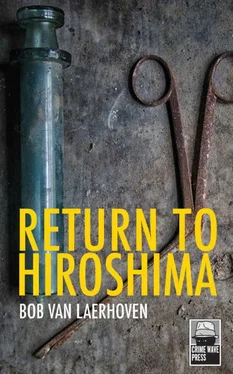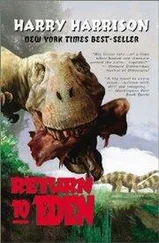“Should we dance and haw-haw around them like American Indians?”
Anna was always moved when Xavier tried to be funny. She laughed out of duty: “Jung was talking about idols. We have to knock them down instead of dancing around them. Otherwise we’ll spend the rest of our lives on our knees in front of our idols.” Anna had read about Jung in a journal recently and raved about him at every opportunity. She tried to read his books and even quoted him now and then.
“If you ask me,” said Xavier, a little affectedly, “the revolt of the younger generation is a bit passé and I don’t need it. We’re not living in the sixties or seventies anymore.”
Anna laughed. “You’re such a goody-goody, the spitting image of dad, only dad’s funnier. He managed to preserve his inner child. Just like Carl Gustav Jung. Even after he became a renowned psychiatrist, Jung still built miniature cities in his living room using sticks and stones and other bits and pieces. It was also something he did as a child. And as an adult he wanted to feel what was going on inside when he was a child, what animated him . He had an Egyptian spirit guide named Philemon. I wouldn’t mind hooking myself someone like Jung when I’m a little older; I’d never be bored again.”
“He probably smoked opium,” said Xavier. “Everyone did in those days. And if you didn’t see yellow skeletons dancing a jig after smoking opium then you were completely gaga.”
Anna laughed: “You’ve been nosing around in my books again. How many times do I need to tell you that you’re more the Tintin type?”
“Help,” said Xavier. “You’re so funny my sides are bursting…”
“The unconscious,” Anne continued enthusiastically. “I’d give anything to know what’s hiding in it, and what it can do if you bring it to the surface.”
“Make you fly? I don’t think so,” said Xavier. Anna gave him a playful punch on his chest. “The unconscious is beyond time and space, idiot. It can take me to a different planet or catapult me back in time.” She pointed to the graves. “To 1915, for example, when those crumbled bones beneath our feet were young men who whistled as they shaved, with a healthy clump of hair under their arms, brown from the sun, and dangling braces.”
“What a morbid horror you are,” said Xavier. He liked using words like morbid. Anna abruptly changed the subject as she often did. “Let’s agree that the first of us to die has to try to give the other a sign.” Xavier’s thoughts were elsewhere: the narrow paths that crisscrossed the landscape and led to inward-looking orchards, the chestnut trees with their blossoms, the nettles, the hedges, the ochre clouds blocking the sun, the absurd noblesse of the cemetery, blinding white exclamations, endless under the distant sky as it peered towards the sea. And suddenly the world was magical, inexplicable.
“What?” said Xavier. In spite of the distractions around him, he had in fact heard her every word.
“I’ll be the first,” Anna continued in a restrained tone.
“Nonsense. You can’t know that.”
She looked at him. Her face glowed like the flame of a candle in the sun. “I don’t know it, I feel it.”
“Are you going to ruin my day with that crap?” said Xavier. He looked away from her, turned towards a tiny lizard enjoying the sun of one of the snow-white gravestones. The creature’s head flashed in the sunlight like a fake diamond.
“You shouldn’t say that kind of thing,” he concluded shiftlessly. She placed an apologetic hand on his arm and pointed to the reptile. “Lizards are messengers of the gods. This one was sent to seal our pact.” She tried to keep it light: “If you die first and forget to give me a sign then your ghost will grow donkey’s ears. Or a lizard’s tongue… it’s your choice.” She laughed and waved at her mother who signalled they should stay close. She headed back to her. Xavier followed then stopped and looked over his shoulder. The lizard disappeared behind the gravestone in a flash of green and gold.
* * *
Shoganai, Xavier Douterloigne thinks as he sits beneath the cherry blossoms. That’s the way it is. Between the branches, the spring sun pitches shards of light that land on his closed eyelids. He has the feeling that he understands nothing about life, and that it’s OK. Not good, just OK. He opens his eyes and starts to dig, carefully at first and then with trembling fingers. He doesn’t take long before he feels something hard. Moments later, he’s holding the tin box he buried with his sister Anna in both hands. The promise wasn’t fulfilled as it should have been, Xavier thinks. More than ten years had passed and things hadn’t turned out as they had expected. The trembling in his hands gets worse as he opens the box. The paper on which Anna wrote her poems has turned dark green from the damp and the Porsche 956K Hockenheim has patches of rust here and there, but the locks of hair are in perfect condition, as are their father’s pen and their mother’s medal.
Xavier holds his breath. It’s impossible, but his eyes aren’t deceiving him. There’s a dark red petal at the bottom of the box.
He’s certain the petal wasn’t there when they buried the box. And even if he’s mistaken, it’s still impossible: cherry blossom petals only keep their intense colour for a couple of days.
While his brains grumble in protest, Xavier Douterloigne thinks back to what Anna said in the cemetery in Flanders Fields.
He holds the petal to his nose. Its smell stuns him… like an arrow to the heart.
Tokyo – St. Luke Hospital – Tsukiji – neurology department – professor Arima and chief commissioner Takamatsu – April 11 th1995
“Professor Arima, I’m chief commissioner Takamatsu of the Hiroshima prefecture. I need you to…”
“Can’t it wait? We’re under incredible pressure treating the two-hundred plus patients that were brought in after the sarin attack.”
“It’s an important matter.”
“Is it that urgent, Mr Takamatsu?”
“It’s about Mr Takeda. He’s in ward three, if I’m properly informed.”
“Mr Takeda. A moment… Yes, you’re correct chief commissioner. But get to the point, please.”
“Takeda was one of my inspectors in Hiroshima. He was suffering from depression and killed his wife just before he fled to Tokyo.”
“Is that so? Serious business indeed. You’ve come to arrest him, I presume?”
“I have subordinates to do that kind of thing, professor Arima. I’m more interested in his condition…”
“Doesn’t ward three ring a bell, Takamatsu?”
“I’m afraid not.”
“That’s where we keep people ‘alive’ who were in such bad shape when they were brought in we had to use a defibrillator on them. The majority are in a vegetative state, literally. The sarin completely poisoned their nervous system. If Mr Takeda ever emerges from the coma he’s in, he’ll have the intellectual age of a four-year-old infant. Large parts of his brain have been damaged. He won’t be able to use his limbs anymore, but we still have to wait and see how serious that paralysis will be.”
“Will he be able to speak, doctor?”
“He’ll be able to make noises, but carry on a conversation or make a statement… forget it, commissioner. The man is a complete wreck and will stay that way until the day he dies. If I wasn’t a doctor and hadn’t sworn the Hippocratic Oath, I would advise euthanasia. It would be more humane than keeping him alive. But isn’t that the way we are here in Japan? Duty prevails over everything. Will you excuse me?”
“Of course, doctor, with pleasure.”
Читать дальше












